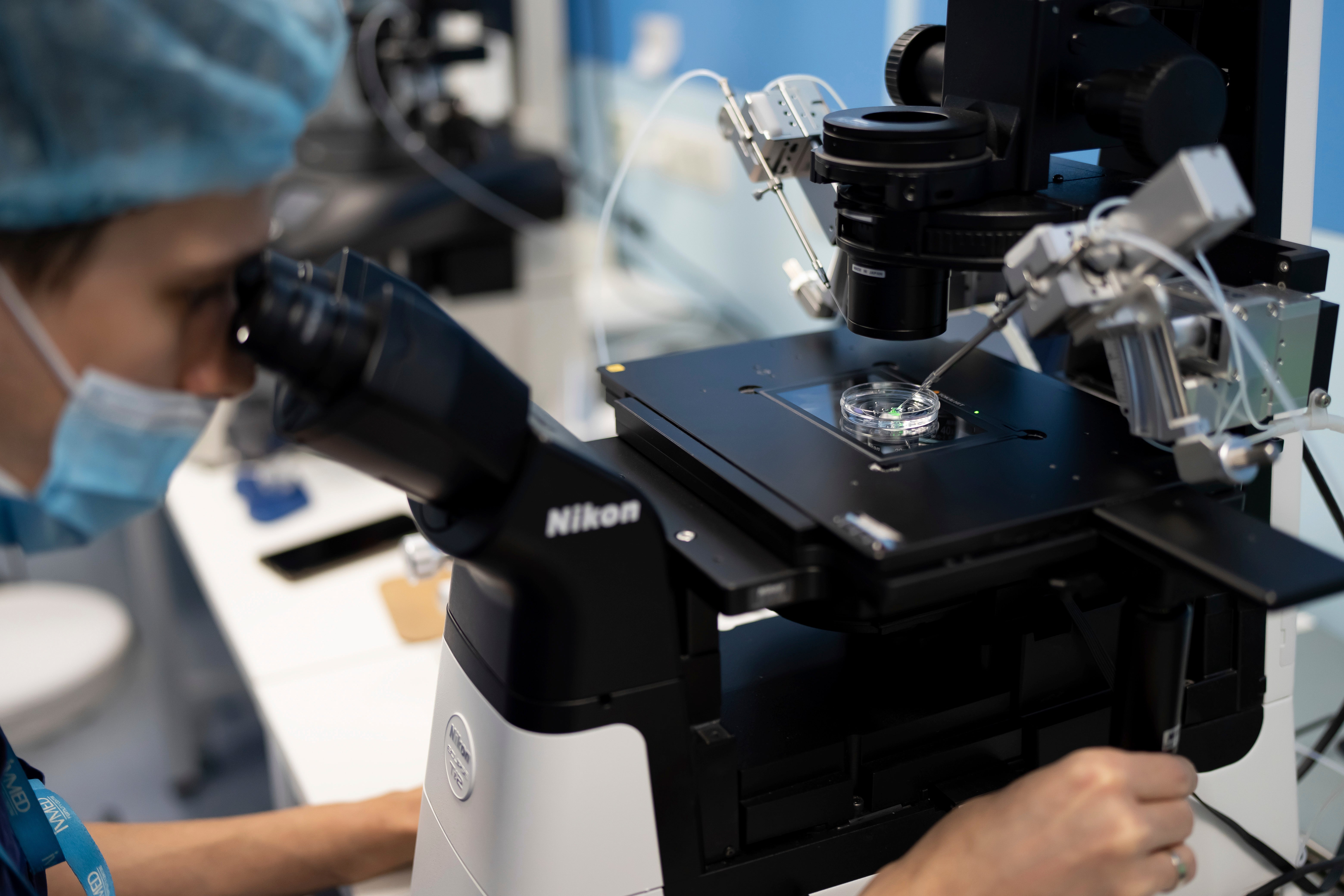Male contraceptive pill stops sperm swimming: ‘Game changer’
There were 52 attempts at impregnation in the study and all failed

Your support helps us to tell the story
From reproductive rights to climate change to Big Tech, The Independent is on the ground when the story is developing. Whether it's investigating the financials of Elon Musk's pro-Trump PAC or producing our latest documentary, 'The A Word', which shines a light on the American women fighting for reproductive rights, we know how important it is to parse out the facts from the messaging.
At such a critical moment in US history, we need reporters on the ground. Your donation allows us to keep sending journalists to speak to both sides of the story.
The Independent is trusted by Americans across the entire political spectrum. And unlike many other quality news outlets, we choose not to lock Americans out of our reporting and analysis with paywalls. We believe quality journalism should be available to everyone, paid for by those who can afford it.
Your support makes all the difference.A contraceptive pill for men has been developed that could be taken just before sex.
The ‘on demand’ therapy blocks a fertility protein for 24 hours, scientists said.
They say it could be more effective than women’s oral birth control medications which have to be taken daily.
In experiments, the non-hormonal compound stopped mouse sperm cells in their tracks - preventing them from maturing.
The animals’ sexual functioning was normal. Male lab rodents mated with females - but there were no pregnancies.
Lead author Dr Melanie Balbach said: “Our inhibitor works within 30 minutes to an hour.
“Every other experimental hormonal or non-hormonal male contraceptive takes weeks to bring sperm count down or render them unable to fertilise eggs.”
The drug temporarily disables an enzyme called sAC (soluble adenylyl cyclase) which triggers the cells to swim.
Dr Balbach said: “Sperm recovered from female mice remained incapacitated. There were no side effects.
“The compound wore off three hours later, and males recovered their fertility.”
A single dose rendered sperm immobile for up to two-and-a-half hours - with the effects persisting in the female reproductive tract after sex.
There were 52 attempts at impregnation and all failed.
In contrast, peers treated with a placebo that acted as a control made a third of their partners pregnant.
After three hours, some sperm began regaining motility, with virtually all recovering a day later.
The team at Weill Cornell Medicine, New York, hailed the breakthrough as a potential “gamechanger”.
Scientists have been trying to develop an effective male oral contraceptive for decades.
Targeting testosterone has previously led to obesity, depression and high cholesterol.
Women’s choices range from pills to patches to intrauterine devices. As a result, they bear most of the burden of preventing pregnancy.
It takes weeks to reverse the effects of other hormonal and non-hormonal male contraceptives in development, said Dr Balbach.
Her’s wears off within hours. Men would take it only when, and as often, as needed.
It could allow men to make day-to-day decisions about their fertility, she explained.
Co author Professor Lonny Levin said: “The team is already working on making sAC inhibitors better suited for use in humans.”
They have already launched Sacyl Pharmaceuticals. The next step is repeating the study in a different pre-clinical model to lay the groundwork for clinical trials.
They would test the effect on sperm motility in healthy human males, said co author Prof Jochen Buck.
If successful, Prof Levin added he hopes to walk into a pharmacy one day and hear a man request “the male pill.”
The findings, published in the journal Nature Communications, are among the most promising to date - offering real hope of bringing it to fruition.
It would help reduce unintended pregnancies and abortions, as well as improving maternal health and decreasing infant mortality.
The female pill has enabled millions of women take control of their fertility and reproductive health since it became available in 1961.
Its convenience and non-invasiveness has provided little incentive for pharmaceutical giants to develop a male equivalent.
A recent study that injected men with testosterone and progestogen - similar to hormones found in the female pill - had to be stopped early.
Pregnancy rates for female partners of men receiving the injections fell below that typically seen for women on the pill.
Adverse side effects included acne, mood disorders and raised libido. They proved too severe - despite the desired drop in sperm production.



Join our commenting forum
Join thought-provoking conversations, follow other Independent readers and see their replies
Comments